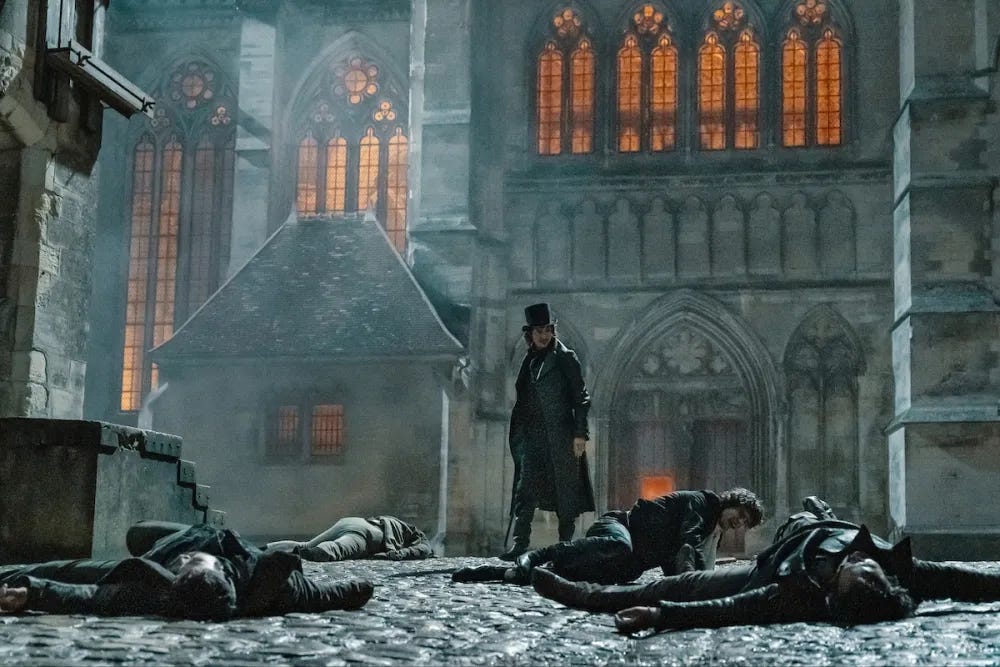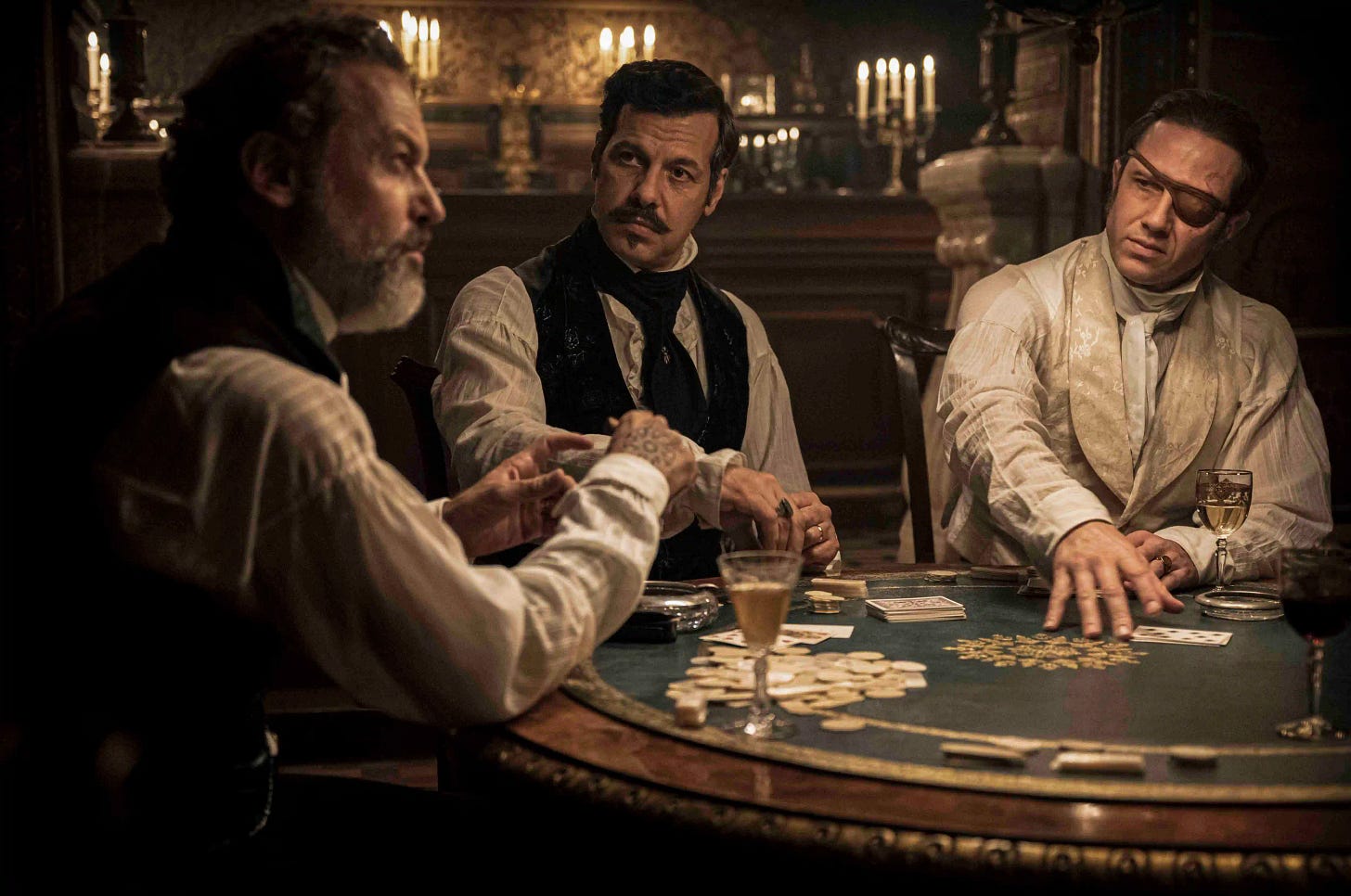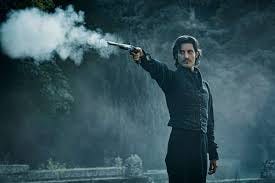Hope is Important
Why "The Count of Monte Cristo" still matters
I grew up without a television until I was 8 or 9 years old. My parents used to rent one for special events – like the day Nixon resigned, or (years earlier) when the Beatles were on Ed Sullivan, which may account for my exaggerated belief in their importance. When I was 7, I had a friend who lived down the street named Elizabeth, and she and I used to argue about who’s house to go over to after school: I loved going to hers because I could watch TV there, and she loved going to mine because I had an upstairs, and siblings. In short, it was the perfect friendship.
In the end, my parents’ decision to bar us kids from it didn’t make us like TV any less or more than anyone else, but it did make it harder for me to pay attention to it when I grew up. I watch more than I used to, now that I don’t go to shows very often, but where this lack of early training affects me most, is in my inability to watch movies at home all the way through. It has to be the most riveting movie of all time or I either a) fall asleep or b) wander off in the middle of it.
To really enjoy a movie, I have to go to the movie theater, and that can be limiting, since most of the movies shown in the Cineplex are so terrible. Recently, however, I noticed that they were playing a new film of “The Count of Monte Cristo,” and I rushed on over. And boy, oh boy, what a good decision that was! I mean: there could be few better ways of spending January 6 than watching a movie about a guy who gets is own back on a myriad of powerful and corrupt assholes who have randomly ruined his life just in order to hide what political side they were on.
Dictatorship? Monarchy? Dictatorship? Monarchy? Tough decision, n’est pas?
In case you don’t know, “The Count of Monte Cristo” is about a young guy who is dragged kicking and screaming from the altar on his wedding day and thrown into an impenetrable prison in the middle of the Mediterranean, where he languishes for years for a crime he didn’t commit. Eventually he escapes, claims an unlimited secret fortune on the island of Monte Cristo, and goes back to Paris in disguise to cleverly smash the people who framed him in ways that will hurt them the most.
You can see the appeal: it’s probably the greatest plot of all time because who among us doesn’t dream of doing something similar? I know I do. It used to be that I wished I had a better riposte in some argument, but these days all our enemies are ranged so powerfully against us, and their crimes are so incredibly nefarious, and they all seem so incredibly invincible, that the story of Edmond Dantes sticking it to similarly powerful enemies is almost pornographically pleasant to experience.
There’s pretty much nothing not to like about “The Count of Monte Cristo”, if you love a good costume drama, preferably in French, and the longer the better. It even has a dastardly sword fight, so it’s kind of like going to a Marvel Comics Universe movie…or John Wick. But unlike John Wick, “The Count of Monte Cristo” asks readers to contemplate the difference between justice and vengeance. So I contemplated it, and I decided that, while there might have been an ethical difference in 1840s, when it was written, a bothersome aspect of modern life is that neither one seems remotely attainable now. Desiring revenge and resenting injustice is a very timely feeling though, which may be why this movie had an especial kick to it.
The story is also a reminder that everything going on now, ‘twas ever thus. Edmond Dantes goes to prison because he is surrounded by people who revel in corruption: the slave owning captain who’d rather save his cargo than a person, the businessman who fakes disasters and then sells short, the friend who accuses him of treason in order to get his girlfriend for himself. Mostly they do these things for money, but in the book (not the movie, which elides some of the complexity) they also do it for political gain. Indeed, the story’s whole engine revolves around the plot to get Napoleon off of Elba and back into power in France.
Does that sound familiar? If not, replace the word “Elba” with “Mar A Lago.” The irony is that the plot ends in tears while Edmond is rotting in the Chateau d’If; by the time he gets out, the Bourbons have been restored and a constitutional monarchy has been put in place of the former dictatorship. (Is that a good thing? Who knows. According to Wikipedia: “Exiled supporters of the monarchy returned to France but were unable to reverse most of the changes made by the French Revolution. Exhausted by the Napoleonic Wars, the nation experienced a period of internal and external peace, stable economic prosperity and the preliminaries of industrialization.”)
Maybe it was just that I saw it in January 6, but it struck me afterwards how much the Napoleonic era had in common with the last 8 years. As Marx so truly said, history repeats itself, the first time as tragedy, the second as farce. Or so we should hope. I don’t actually think we’ll see a Waterloo in the near future, but I like the final words of both the book and the movie: “Attendre y esperer!” Wait and hope. Because, I mean, what other choice do we have?






Are you certain about the real location, such as there could be a location to inspire the story? Last time I was in Cannes was the first time I was made aware of an island just off the bay, complete with Monte Cristo era castle, which was quite formally (signs, paths around the castle, etc) presented as the inspiration for the story. And even if it's not true, the scenery and history were enough to inspire memories of reading it and seeing the different film versions.